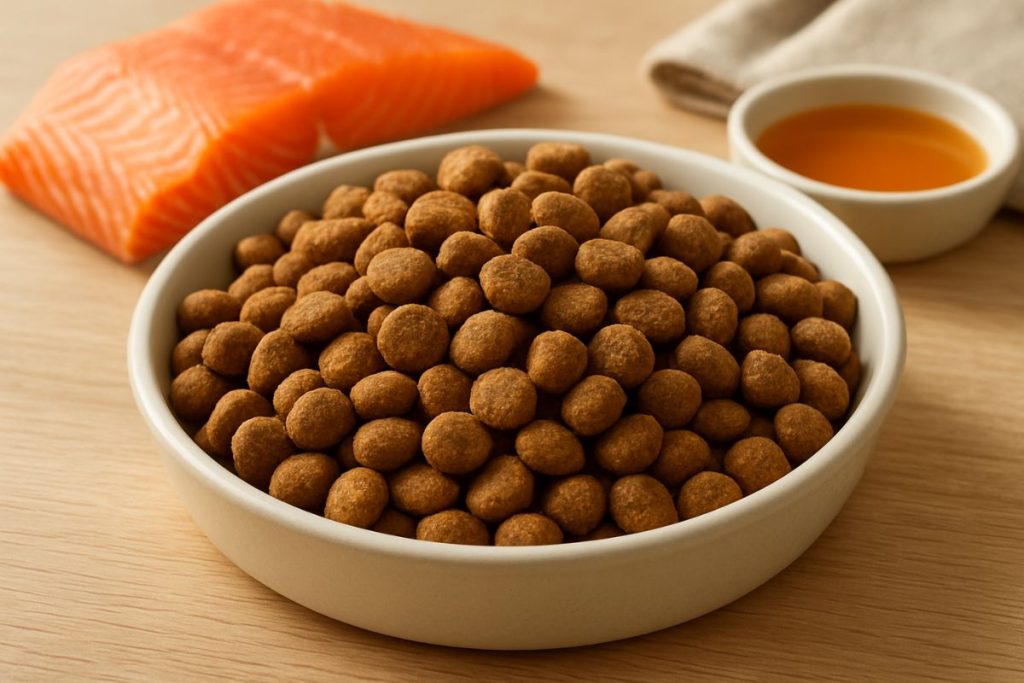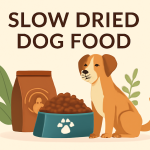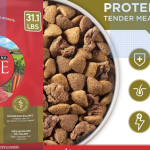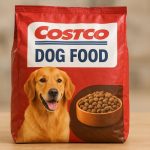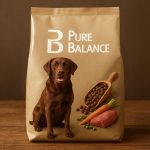Meta Title (≤60 chars): Best Dog Food for Allergies: Salmon Omega-Rich Nutrition
Meta Description (≤160 chars): Discover why salmon dog food is the best for allergy-prone pups. Grain-free, rich in Omega-3, with top brands like Zignature, Wellness & Instinct.
Best Dog Food for Allergies: Salmon Omega-Rich Nutrition
Feeding an allergy-prone dog means choosing the best dog food for allergies carefully. Dogs often react to common ingredients like beef, chicken or grainspetmd.com, so many pet owners opt for novel-protein diets. Salmon-based dog foods fit the bill: they’re rich in Omega-3 fatty acids (EPA and DHA) and tend to be grain-free and limited-ingredient. In fact, salmon provides high-quality protein and essential fats that support skin, coat and immune health. With dog allergy rates reportedly rising (one study found ~25% of dogs had allergy issuestime.com), switching to a salmon formula can soothe itchy skin and digestive sensitivities. This guide explains why salmon dog food is ideal for sensitive pups, highlights top brands (Zignature, Wellness, Instinct), and shares feeding tips and FAQs.
Why Salmon Dog Food Is So Beneficial
Chum salmon jumping upstream – a natural source of omega-3 fatty acids for dog health. Salmon is a natural powerhouse in canine nutrition. Like other cold-water fish, salmon is loaded with the long-chain Omega-3 fatty acids EPA and DHApurina.com. These essential fats do wonders for dogs: they lubricate joints, calm inflammation, and nourish skin cells. Omega-3s support healthy brain and eye development in puppies (and even help senior dogs maintain cognitive function)purina.com. They also bolster immune health and may reduce allergy flare-ups. For example, salmon’s EPA has been shown to ease skin allergies by reducing inflammatory chemicals in the bodyaddictionpet.com. Meanwhile, vitamin-rich salmon (high in B12, selenium, niacin and vitamin Daddictionpet.comaddictionpet.com) rounds out a balanced diet.
- Skin & Coat Health: The omega-3s in salmon help maintain a glossy coat and hydrated skin, often improving symptoms of dermatitis or itchingpurina.comaddictionpet.com. Omega-6 fats (also present) work alongside to boost coat sheen and barrier healthpurina.com.
- Anti-Inflammatory: EPA from salmon can dampen immune overreactions. Clinical reports note that omega-3s “help reduce inflammation” and soothe allergies by blocking inflammatory signalsaddictionpet.com. This is why veterinarians often recommend fish oil or salmon oil supplements for allergic dogs.
- High Protein: Salmon delivers lean, digestible protein for muscle and heart healthzignature.com. It’s a complete protein source, meaning it contains all the amino acids dogs need.
- Brain and Eye Development: Docosahexaenoic acid (DHA) – abundant in salmon – is crucial for puppy brain and vision developmentaddictionpet.compurina.com. Many premium dog foods highlight DHA for this reason.
- Nutrient Boost: Salmon provides B vitamins and minerals (like selenium) that support metabolism and antioxidant defenses (see Addiction Pet nutritional breakdownaddictionpet.comaddictionpet.com).
Because salmon is rich in these nutrients, it’s often called a “superfood” for dogs. Pet nutritionists emphasize that any dog food listing salmon (or salmon oil) as an ingredient likely contains beneficial Omega-3spurina.com. In fact, Purina advises checking labels: if a food lists “salmon meal” or “salmon oil”, your dog will get significant omega-3 fatty acidspurina.com.
Salmon Is a Novel Protein for Allergy Relief
Salmon’s protein is relatively novel for many dogs. Common culprits for food allergies in dogs include beef, chicken, dairy and wheatpetmd.com. Salmon is not among those top triggers, so it’s less likely to provoke an immune reaction. Zignature (a pet food brand) notes that salmon protein “is less likely to trigger allergic reactions compared to common proteins like chicken,” making it ideal for sensitive dogszignature.com. Wellness Simple – a limited-ingredient diet – similarly markets its Salmon & Potato recipe as formulated for “allergy prone adult dogs”wellnesspetfood.com. By avoiding common allergens and using a single novel protein source (salmon), these formulas help pinpoint tolerance.
Key Takeaway: For dogs with food sensitivities, salmon provides protein and nutrients without the usual allergens. This makes salmon dog food a top pick in hypoallergenic dietszignature.comwellnesspetfood.com.
Grain-Free & Limited-Ingredient Diets for Allergic Dogs
Allergy-friendly dog foods often go hand-in-hand with grain-free or limited-ingredient formulations. Grain-free diets eliminate wheat, corn, soy or other grains that can irritate some dogs. Limited-ingredient diets keep the ingredient list short (e.g. one protein and a few carbs) so you know exactly what your pet is eating. For allergy-prone pets, both strategies can simplify digestion and reduce triggers.
Research suggests grain-free dog food can significantly help dogs with grain allergies or sensitivitiesdogtime.com. Dogtime reports that if a dog has a grain allergy, switching to a grain-free food can be “a necessity,” often relieving stomach upset and skin symptomsdogtime.com. Grain-free recipes also tend to have higher proportions of meat and healthy oils. For example, the Instinct Original Salmon formula is formulated with 72% real animal ingredients and 0% graininstinctpetfood.com. It’s packed with fish-based proteins and omega oils, with no corn, wheat or soy that could cause reactionsinstinctpetfood.com.
Popular Grain-Free Salmon Formulas:
- Zignature Salmon Formula: Zignature’s original Salmon kibble is 100% grain-free and excludes potatoes, soy, and chickenzignature.com. It includes prebiotics and probiotics (for digestive health) and has salmon and salmon meal as top ingredients. The company highlights that its salmon diet is “formulated without grain, potato, soy or chicken,” making it ideal for food-sensitive dogszignature.com. The guaranteed analysis shows high crude protein (29%) and omega-3 content (2.8%)zignature.com.
- Wellness Simple Salmon & Potato: Wellness’s Simple line is a limited-ingredient diet designed for dogs with sensitivities. The Salmon & Potato formula uses one protein (salmon) and easily digestible carbs (potato, peas) with no fillers. Wellness explicitly markets it as a natural alternative to prescription allergy dietswellnesspetfood.com. It’s grain-free and free of wheat, dairy, and artificial additiveswellnesspetfood.com. The guaranteed analysis lists 25% crude protein and a combined probiotic blend for gut healthwellnesspetfood.com.
- Instinct Original Salmon: Instinct’s salmon recipe features wild-caught salmon as the first ingredientinstinctpetfood.com. It’s also grain-free (no corn, wheat, or soy) and coated with a raw boost for extra nutrition. According to Instinct, each kibble contains live probiotics, natural omega oils and antioxidants “for digestive health, healthy skin & coat, and immune health”instinctpetfood.com. Guaranteed analysis: 37.5% protein, 21% fat, with 1.7% omega-3instinctpetfood.com. This high-fat content helps nourish the coat.
These formulas demonstrate key allergy-friendly traits: single protein source, added probiotics, no common allergens or fillers, and high omega-3 levels. Many dog food experts recommend such diets as first-line for dogs with skin or GI issues. A veterinarian might suggest a limited-ingredient salmon diet during an elimination trial to see if symptoms improve. If grain or ingredient sensitivities are suspected, grain-free salmon food is a logical choicedogtime.com.
How Salmon Nutrition Helps Allergic Dogs
By now, it’s clear: salmon as a dog food ingredient offers multiple benefits for allergies and general health. Key advantages include:
- Omega-3 Fatty Acids: Salmon is one of the best natural sources of EPA and DHA for dogspurina.com. These fats are essential (dogs can’t make them) and support skin moisture and immune modulation. Clinical guides note omega-3s aid joints, heart, kidneys, and cognitive functionpurina.com. For a dog battling itchy skin or arthritis, salmon’s omega-3s can reduce inflammation over time.
- Omega-6 Balance: While most commercial foods have ample omega-6s (like linoleic acid) for skin healthpurina.com, adding salmon increases omega-3 to balance the ratio. Proper omega-6:3 ratio (around 30:1) is important for preventing excess inflammationpurina.com. Salmon-based diets tend to bring the ratio closer to that ideal.
- Digestibility: Fish proteins are highly digestible, meaning dogs extract more nutrition with less gut upset. This is helpful for pets with sensitive stomachs. Grain-free salmon kibbles often use legumes or potatoes instead of grains, which may be gentler on digestion.
- Novel Immune Profiles: Some studies suggest that fish proteins may be less immunogenic for many dogs. By rotating between protein sources (e.g., chicken → salmon), owners can minimize chances of developing a food allergyzignature.competmd.com. Salmon’s unique protein profile and fat composition make it one of the most recommended novel proteins in veterinary nutrition for allergy and skin conditions.
In short, salmon supplies the nutrients allergic dogs need while avoiding many triggers. Numerous veterinary nutritionists emphasize that including omega-rich fish in the diet is a cornerstone of managing dermatitis and other allergy symptoms. As Purina notes, listing trout, salmon meal or salmon oil in the ingredient panel is “a good indication” the food provides EPA/DHApurina.com.
Top Salmon Dog Food Brands to Consider
When shopping, look for reputable brands that highlight salmon prominently. We’ve already mentioned Zignature, Wellness, and Instinct – here are a few more examples and points on each:
- Zignature Original Salmon Formula: A pioneer in the limited-ingredient market. Zignature foods are grain-free and include added probiotics. The salmon formula boasts 29% protein and 2.8% omega-3zignature.com. It’s specifically designed for dogs with sensitivities (“good for food-sensitive dogs”zignature.com). Reviewers often note improvements in dog coat and digestion after switching.
- Wellness Simple Limited Ingredient – Salmon & Potato: Wellness is a well-known brand that uses natural ingredients. The Simple line is excellent for allergies: only salmon and a few carbs, no chicken or grainswellnesspetfood.com. Many owners of dogs with itchy skin report success with this formula, since it avoids common irritants. Wellness also includes probiotics and antioxidants from fruits/veggies.
- Instinct Original Grain-Free Salmon: Backed by Nature’s Variety, Instinct offers high-protein, raw-coated kibbles. Their Salmon recipe leads with wild salmon and is grain-freeinstinctpetfood.com. Each bite is coated with freeze-dried raw salmon for extra nutrient density. Instinct emphasizes digestive health (“guaranteed levels of live probiotics”instinctpetfood.com) which can benefit sensitive dogs.
- Other Notable Mentions: Some other allergy-friendly salmon options are Nutro Limited Ingredient Diet Salmon, Merrick Grain-Free Salmon, and Natural Balance L.I.D. Salmon. These use salmon or other fish as the sole protein. Also consider foods fortified with salmon oil supplements (even if not salmon-flavored) to boost omega-3.
Remember: When comparing brands, focus on ingredient lists and guaranteed analysis. A true salmon recipe will list salmon or salmon meal first. Avoid foods that mix fish with other common proteins (this defeats the purpose of a novel protein diet). Also ensure AAFCO compliance for your dog’s life stage.
Grain-Free Dog Food and Allergy Myths
There is some controversy around grain-free diets (heart health studies, etc.), but for many allergic dogs, grain-free salmon foods are still recommended. The key is balance and quality. Grain-free does not automatically mean healthier, but removing wheat or corn can remove one allergen. If your dog truly has grain sensitivity, a grain-free salmon diet (like many of the ones above) is appropriatedogtime.com. Otherwise, moderate inclusion of ancient grains (or not) is less critical.
A few tips:
- Limited Ingredients: Stick to foods with very short ingredient lists (e.g. “Salmon, Salmon Meal, Peas, Potatoes…”). Fewer ingredients make it easier to pinpoint allergens if needed.
- Rotate Proteins: Even after finding a good salmon diet, rotating among novel proteins (e.g., fish, rabbit, duck) every few months can help prevent developing new allergies.
- Supplements: Consider adding a fish oil supplement if omega-3 content seems low. Salmon dog foods already have fish oils, but some vets recommend extra for dogs with severe skin issues. Consult a vet for dosage.
Feeding Guidelines and Safety Tips
When introducing salmon into your dog’s diet, do it gradually. Sudden diet changes can upset digestion. Start by mixing a small amount of the new salmon food with the old diet, and increase over 5–7 dayszignature.com. Monitor for any adverse reactions. If your dog tolerates salmon well, continue. If signs of food allergy (vomiting, diarrhea, skin rash) appear, stop and consult your vet.
Cooking your own salmon for dogs requires caution: always cook thoroughly to 145°F and remove all bonesaddictionpet.com. Raw salmon can carry parasites. Avoid smoked or heavily seasoned salmon – the salt and additives are unsafe for pets. In most cases, it’s easier to buy a high-quality salmon dog food. Premium canned or kibble formulas use pasteurized salmon and are balanced for nutrients.
According to veterinary guidelines:
- Cook fish at 145°F or 62°C to kill parasitesaddictionpet.com.
- Debone the fish carefully – salmon bones can splinter.
- Choose salmon packed in water, not brine or oil, if using canned.
- Skip smoked salmon – it’s too salty and has nitrates.
Lastly, always consult your veterinarian, especially if your dog has a confirmed food allergy. True food allergies are relatively uncommon (most itching in dogs comes from fleas or environmentpetmd.com), but when they do occur, a vet may prescribe a veterinary therapeutic diet or specific supplements. Commercial salmon foods can help manage symptoms from environmental allergens, but dogs with diagnosed food allergies often need stricter dietspetmd.com.
Conclusion
Salmon dog food offers an “omega-rich” foundation for pets with allergies and skin sensitivities. As many vets and pet experts note, no single diet suits every allergic dogpetmd.com, but salmon-based, grain-free, limited-ingredient formulas are among the top choices for reliefzignature.comwellnesspetfood.com. These diets leverage salmon’s anti-inflammatory fats and novel protein to support skin, coat, joints and overall health. When shopping, look for products from trusted brands (like Zignature, Wellness, Instinct, etc.) that clearly list salmon as a primary ingredient and avoid common allergenszignature.comwellnesspetfood.com.
Always read labels: Salmon meal or salmon oil in the first few ingredients is a good signpurina.com. Maintain gradual diet transitions and consult your vet about adding salmon or fish oil supplements. With the right recipe, many dogs see dramatic improvement in itchiness and comfort. If your dog’s allergies improve on a salmon diet, consider sharing your success – it may help other pet parents looking for the best dog food for allergies.
Ready to learn more? Talk to your vet about trying a salmon-based formula, and share which omega-3 enriched foods have worked for your furry friend. Your insights can help build a healthier pet community!
FAQs (Frequently Asked Questions)
- Q: Is salmon a good dog food for dogs with allergies?
A: Yes. Salmon is a novel protein and is less likely to cause reactions in dogs allergic to common meats like chicken or beefpetmd.comzignature.com. It’s also rich in Omega-3 fatty acids that can help soothe itchy skin and support immune health. Many hypoallergenic formulas use salmon as the main protein for this reason. - Q: What should I look for on the label of an allergy-friendly dog food?
A: Look for a single, novel protein (like salmon) as the first ingredient, and minimal additives. Check that the food is grain-free if your dog has grain sensitivities. Also confirm the guaranteed analysis lists adequate omega-3 levels (often from fish oil). Labels should avoid fillers, artificial colors/flavors, common allergens (wheat, soy, chicken, etc.)wellnesspetfood.compurina.com. - Q: Can grain-free dog food help with allergies?
A: It can if your dog is specifically allergic to grains. Grain-free diets eliminate wheat, corn and soy, which are common irritants. Many salmon dog foods are grain-free by design. Studies note that if a dog has grain allergies or intestinal sensitivities, switching to a grain-free formula often reduces symptomsdogtime.com. However, grain-free isn’t a cure-all – always coordinate with your vet. - Q: How do omega-3s in salmon benefit my dog?
A: Omega-3 fatty acids (EPA and DHA) support many systems. They reduce inflammation, improve skin and coat quality, aid joint mobility, and support brain and eye healthpurina.comaddictionpet.com. Salmon and other fatty fish are excellent natural sources. In allergic dogs, omega-3s can help calm skin flare-ups and itching. - Q: How much salmon should I feed my dog?
A: Follow your dog food’s feeding guidelines, as kibble and canned diets have balanced nutrition. If adding cooked salmon manually, keep it to ~10% or less of total diet to maintain nutritional balance. Always remove bones and cook thoroughly. For oil supplements, vets often recommend fish oil doses of ~20-55 mg EPA+DHA per pound of dog per day (ask your vet for exact dosing). - Q: Can I cook fresh salmon for my dog?
A: Yes, but safely. Cook it well (145°F), debone completely, and do not add salt or seasoning. As noted above, avoid raw or smoked salmon. Many owners find it easier to let a formulated dog food handle preparation. Cooking guidelines from veterinary sources emphasize thorough cooking to avoid parasitesaddictionpet.com. - Q: My dog’s itching isn’t from food allergy. Why try salmon diet?
A: Even with environmental allergies, diet plays a role. A high-quality diet can strengthen skin and immune function, making symptoms easier to manage. Diets rich in omega-3 (like salmon-based foods) can help alleviate the severity of allergy symptoms. Many veterinarians support hypoallergenic diets to give allergic dogs the best chance at relief, regardless of the allergy sourcepetmd.com.
Sources: Advice and data in this article come from pet nutrition experts and veterinary resources. We cite brand product pages (Zignature, Wellness, Instinct)zignature.comwellnesspetfood.cominstinctpetfood.com and veterinary pet health sites (PetMD, Purina, Time Magazine)petmd.compurina.comtime.com to ensure the information is accurate and up-to-date. Always consult your veterinarian for personalized pet diet recommendations.

